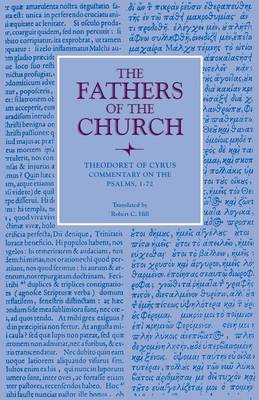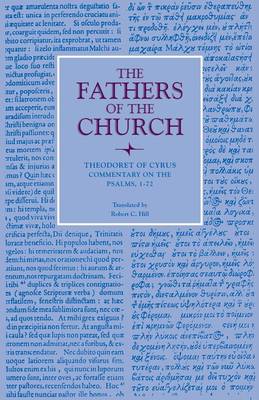
- Afhalen na 1 uur in een winkel met voorraad
- Gratis thuislevering in België vanaf € 30
- Ruim aanbod met 7 miljoen producten
- Afhalen na 1 uur in een winkel met voorraad
- Gratis thuislevering in België vanaf € 30
- Ruim aanbod met 7 miljoen producten
Zoeken
€ 72,95
+ 145 punten
Uitvoering
Omschrijving
This volume makes available for the first time in English the major biblical commentary by one of the leading exponents of Antiochene exegesis, Theodoret, bishop of Cyrus. Though originally intended as an opening to his exegetical work--in the manner of his predecessors in this school, Theodore of Mopsuestia and John Chrysostom--Theodoret's Psalms commentary comes from his later ministry in the decade before the Council of Chalcedon, which he was instrumental in convening. It thus documents current christological and trinitarian concerns and illustrates an Antiochene hermeneutic that rests firmly on the literal sense of the ""inspired composition of the mighty David."" Though commentators less well acquainted with this lengthy work have been ready to dismiss Theodoret as lacking originality, a sounder assessment would acknowledge his willingness to take account of previous work, from both Alexandria and Antioch, and steer a middle course. He deliberately avoids the excesses of allegorical interpretation of Origen, on the one hand, and of the historicism found in Diodore and Theodore, on the other. Moderation and flexibility are the hallmarks of his own approach to the Psalms, to which he comes not as scholar or preacher but as teacher and pastor. He aims simply to offer his readers ""some benefit in concentrated form."" This translation respects the conciseness which the bishop sets as one aim for himself, his other principle being to let the text speak for itself. Theodoret emerges in this work as a measured commentator and balanced exponent of his school's hermeneutical and theological principles.
Specificaties
Betrokkenen
- Auteur(s):
- Vertaler(s):
- Uitgeverij:
Inhoud
- Aantal bladzijden:
- 452
- Taal:
- Engels
- Reeks:
Eigenschappen
- Productcode (EAN):
- 9780813227672
- Verschijningsdatum:
- 1/07/2000
- Uitvoering:
- Paperback
- Formaat:
- Trade paperback (VS)
- Afmetingen:
- 140 mm x 216 mm
- Gewicht:
- 571 g

Alleen bij Standaard Boekhandel
+ 145 punten op je klantenkaart van Standaard Boekhandel
Beoordelingen
We publiceren alleen reviews die voldoen aan de voorwaarden voor reviews. Bekijk onze voorwaarden voor reviews.











